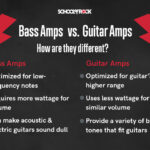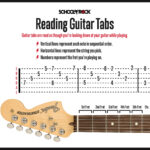Electric guitars have become an iconic instrument in modern music, powering genres from rock and blues to jazz and metal. If you’re looking to pick up this exciting instrument, one of your first questions is likely: how much does an electric guitar cost? The answer isn’t always straightforward, as prices can vary widely based on several factors. This guide will break down the cost of electric guitars, helping you understand what to expect at different price points and find the perfect instrument for your budget.
Factors Influencing Electric Guitar Prices
The price of an electric guitar is determined by a combination of elements, each contributing to the overall value and playing experience. Understanding these factors will empower you to make an informed decision when purchasing your instrument.
Beginner vs. Intermediate vs. High-End Guitars
Just like any product, electric guitars are often categorized into beginner, intermediate, and high-end levels, each reflecting different quality and price ranges.
- Beginner Electric Guitars: These are the most affordable options, typically ranging from $100 to $400. These guitars are designed to be accessible for newcomers, often prioritizing playability and basic functionality over premium components or intricate finishes. Brands like Squier (by Fender), Epiphone (by Gibson), and Ibanez offer excellent starter models in this price range.
- Intermediate Electric Guitars: Stepping up in quality, intermediate guitars usually cost between $400 and $800. At this level, you’ll find instruments with better quality materials, improved pickups that offer richer tones, and enhanced hardware for tuning stability and overall reliability. These guitars are suitable for players who are committed to improving their skills and potentially performing or recording.
- High-End Electric Guitars: For serious musicians and professionals, high-end electric guitars start around $800 and can easily exceed $2000. These instruments boast top-tier craftsmanship, premium tonewoods, high-quality pickups (often hand-wound), and meticulous attention to detail in every aspect of construction. Brands like Fender Custom Shop and Gibson Custom produce highly sought-after models in this category, known for their exceptional sound, playability, and collectibility. Limited edition or handcrafted guitars can reach prices in the tens of thousands of dollars.
Brand Reputation and Legacy
Established brands with a long history and positive reputation in the guitar industry often command higher prices. Fender and Gibson, for example, are iconic names synonymous with electric guitars. Their instruments, even at lower price points, may carry a slight premium due to brand recognition and perceived value. However, this also often translates to better resale value and a sense of legacy.
Materials and Craftsmanship
The types of wood used in the body and neck of an electric guitar significantly impact its tone and price. Tonewoods like alder, ash, mahogany, and maple are commonly used, each with unique sonic characteristics. Higher-grade tonewoods, especially those that are visually appealing or rare, will increase the cost. Craftsmanship also plays a crucial role. Guitars made with meticulous handcrafting, precise fretwork, and flawless finishes will naturally be priced higher than mass-produced instruments.
Features and Electronics
The components and features of an electric guitar directly affect its price. Pickups, responsible for capturing the string vibrations and converting them into an electrical signal, come in various types and qualities. Higher-end pickups, often made with premium magnets and windings, offer superior tone and responsiveness, adding to the guitar’s cost. Similarly, quality hardware like tuning machines, bridges, and potentiometers contribute to the overall performance and longevity of the instrument. Special features like coil-splitting (for versatile tonal options) or unique wiring configurations can also influence the price.
New vs. Used Guitars
Considering a used electric guitar can be a great way to save money. Depreciation affects guitars, and you can often find excellent quality used instruments at significantly lower prices than their new counterparts. Websites like Reverb and eBay, as well as local guitar shops, are good places to explore used guitar options. However, when buying used, it’s essential to inspect the guitar carefully for any damage or wear and tear that could affect its playability or require costly repairs.
Electric Guitar Price Ranges: A Detailed Breakdown
To give you a clearer picture, let’s delve deeper into the price ranges and what you can expect at each level:
Entry-Level Electric Guitars ($100 – $400)
In this budget-friendly range, you’ll find guitars that are perfect for beginners to learn on without a significant financial commitment.
- Brands: Squier (Affinity and Bullet series), Epiphone (Les Paul Special and SG Special), Ibanez (GIO series), Yamaha (Pacifica series), and Jackson (JS series) are popular choices.
- Features: These guitars typically feature simpler hardware, more basic pickups, and may use less expensive woods like basswood or agathis. However, they are designed to be playable and durable enough for learning.
- Sound Quality: Entry-level guitars can produce a decent range of tones suitable for various genres, though they may lack the nuanced and refined sound of higher-end models.
- Ideal for: Beginners, students, or anyone wanting to try out electric guitar without a large investment.
Mid-Range Electric Guitars ($400 – $800)
Moving into the mid-range opens up a world of guitars with noticeable improvements in quality and performance.
- Brands: Fender (Player series), Epiphone (Les Paul Standard and SG Standard), Ibanez (RG and AZ series), Schecter (Omen and C series), and PRS (SE series).
- Features: Mid-range guitars often feature better quality tonewoods (like alder or mahogany), upgraded pickups that offer richer and more versatile tones, and more robust hardware for improved tuning stability and playability. You might also find features like coil-splitting or locking tuners in this range.
- Sound Quality: These guitars deliver a significant step up in sound quality compared to entry-level models. They offer a wider dynamic range, improved clarity, and more distinct tonal characteristics, making them suitable for gigging, recording, and serious practice.
- Ideal for: Intermediate players, gigging musicians, hobbyists seeking better quality and tone.
High-End and Premium Electric Guitars ($800+)
High-end electric guitars are instruments built for discerning players who demand the best in tone, playability, and craftsmanship.
- Brands: Fender (American Professional and American Ultra series, Custom Shop), Gibson (Les Paul Standard and Custom, SG Standard and Custom, Custom Shop), PRS (Core series, Private Stock), Suhr, Tom Anderson, and boutique builders.
- Features: These guitars utilize premium tonewoods (often hand-selected), top-of-the-line hardware and electronics, and are crafted with meticulous attention to detail. High-end pickups are often hand-wound and voiced for specific tones. Finishes are often elaborate and flawlessly applied.
- Sound Quality: High-end guitars offer unparalleled sound quality, with incredible responsiveness, rich harmonics, and a wide range of nuanced tones. They are instruments that inspire creativity and allow players to express themselves fully.
- Ideal for: Professional musicians, serious collectors, players seeking the ultimate in tone and quality.
Finding the Right Electric Guitar for Your Budget
Choosing an electric guitar involves balancing your budget with your needs and aspirations as a player. Here are some tips to help you find the right instrument:
Setting a Budget
Determine how much you are willing to spend on an electric guitar. Be realistic about your budget, considering that you may also need to factor in the cost of an amplifier, cables, and other accessories.
Exploring Options within Your Price Range
Once you have a budget, research different electric guitar models within that range. Read reviews, watch video demos, and visit local guitar stores to try out different guitars if possible.
Considering Used Guitars
Don’t rule out the used market, especially if you’re on a tighter budget. You can often find higher-quality used guitars for the price of a lower-end new guitar. Just be sure to inspect the instrument carefully before purchasing.
Conclusion
The cost of an electric guitar varies significantly depending on factors like quality, brand, features, and whether you are buying new or used. While beginner guitars can be found for as little as $100, professional-grade instruments can cost thousands. Understanding these price ranges and the factors that influence them will help you navigate the market and find an electric guitar that suits your budget and playing needs. Whether you’re just starting your musical journey or are a seasoned player, there’s an electric guitar out there for you at the right price.


